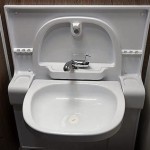Do You Need Planning Permission for a Second Bathroom Wall?
Adding a second bathroom to a home can significantly enhance its value and functionality. However, before embarking on such a project, it is crucial to understand the regulations surrounding building work, particularly regarding planning permission. Whether you need planning permission for a second bathroom wall depends on various factors, including the type of property, location, and proposed construction. This article will explore the key considerations and provide guidance on navigating the planning permission process for a second bathroom wall.
Understanding Building Regulations and Planning Permission
Building regulations and planning permission are distinct but interconnected aspects of construction. Planning permission, granted by the local council, concerns the overall impact of a development on the surrounding area. Building regulations ensure that a construction project meets minimum safety and health standards. While planning permission may be required for larger projects, such as extensions or new buildings, it is less likely to be necessary for internal alterations like adding a second bathroom.
In general, planning permission is typically not required for internal works within an existing property. However, there are exceptions to this rule. If the proposed bathroom wall would require significant structural alterations, such as removing load-bearing walls or changing the building's footprint, then planning permission may be necessary. It is advisable to consult with a building surveyor or structural engineer to assess the specific requirements for your project.
Key Factors Influencing Planning Permission
The following factors are crucial in determining whether planning permission is required for a second bathroom wall:
Location and Property Type
The location and type of property play a significant role in determining the need for planning permission. In designated areas, such as conservation areas or areas of outstanding natural beauty, stricter regulations may apply. For example, if your property is located in a conservation area, adding a second bathroom may require planning permission if it impacts the character of the building or its surrounding environment.
The type of property also influences the need for planning permission. Flats, maisonettes, or properties with shared ownership arrangements may have specific regulations regarding internal alterations. It is essential to consult the property's leasehold agreements to understand the restrictions and obtain necessary permissions before proceeding with the project.
The Nature of the Work
The nature of the work involved in adding a second bathroom wall is another crucial factor. If the project requires significant structural alterations, such as removing load-bearing walls, adding a new window, or changing the building's footprint, planning permission may be necessary. On the other hand, if the work involves creating an internal wall within an existing room, or utilizing an existing space, it is less likely to trigger a planning permission requirement.
Guidance from Local Authorities
The best approach is to contact your local planning department. They can provide specific guidance regarding your project and confirm whether planning permission is necessary. It is always advisable to err on the side of caution and seek professional advice before starting any significant building work. Local authorities can provide valuable information on building regulations, planning permission requirements, and any other relevant permits or approvals that may be necessary for your project.
Benefits of Seeking Professional Advice
Consulting with a qualified architect, building surveyor, or planning consultant can save time, money, and potential headaches. These professionals can help you navigate the complexities of planning regulations and ensure that your project meets all necessary standards and requirements. They can also provide valuable insights into the design process, material selection, and energy efficiency considerations for your second bathroom.
Obtaining professional advice can also minimize the risk of unforeseen delays or complications arising from building regulations or planning permission requirements. It is always advisable to invest in expert guidance, particularly for significant building works, to ensure your project is executed smoothly and meets all legal and regulatory requirements.

Do You Need Permits To Remodel A Bathroom Sweeten Com

Everything You Need To Know About Downstairs Toilet Building Regulations In The

Add A Second Unit In Your House Ontario Ca

Renovating The Bathroom Where To Start Rona

Everything You Need To Know About Downstairs Toilet Building Regulations In The

Home Renovations That Don T Require Planning Permission Homify

What Are The Rules About Installing A Downstairs Toilet Bathroom Ideas Heatandplumb Com

Adding A Bathroom To Your Home Where Start In 2024 Badeloft

How To Add An Ensuite Bathroom Real Homes

How To Add An Ensuite Bathroom Real Homes
Related Posts







